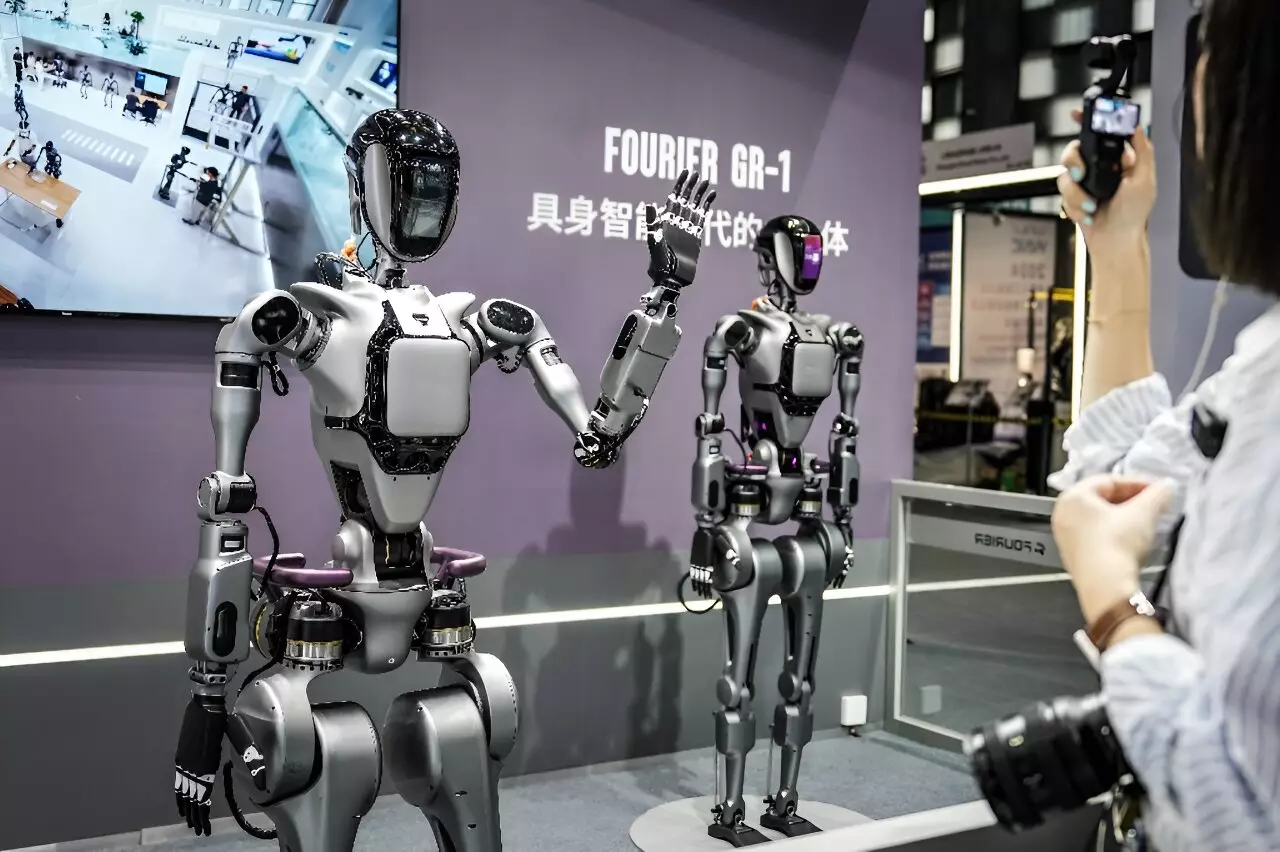In recent years, China’s AI sector has experienced explosive growth, with a significant focus on generative AI technology. The United Nations reports that China has become the top filer of patents for AI software, covering a wide range of applications from illustrations to computer code. This growth was prominently showcased at the World AI Conference in Shanghai, where companies displayed cutting-edge generative AI products developed by a talented pool of young individuals.
Despite increasing restrictions imposed by Western countries on China’s AI industry, there was a sense of confidence among exhibitors at the conference. Ethan Duan, an employee of a startup incubator, believes that China’s substantial tech talent pool could help the industry thrive, even in the face of challenges posed by restrictions from the West. While there are concerns about potential challenges resulting from limitations on access to certain technologies, many in the industry remain optimistic about the future.
The United States, in particular, has taken steps to limit Chinese access to certain technologies, with companies like OpenAI discontinuing its services for Chinese developers. Additionally, export licenses for American chips used by Chinese tech giant Huawei have been revoked, amid concerns about the use of Chinese AI technology for espionage purposes. Despite these challenges, Chinese AI companies are actively expanding their operations both domestically and internationally.
Interest in AI products continues to grow, as evidenced by the enthusiastic crowds at the Shanghai fair. Visitors flocked to the exposition hall to experience interactive exhibits and try out new games developed using AI technology. Companies like OpenCSG are finding ways to navigate around US restrictions and are optimistic about their ability to compete on a global scale. The founder of an AI-equipped health equipment company noted the increasing demand for innovative products in the market, indicating a positive outlook for the industry.
Chinese officials, including Premier Li Qiang, have reiterated the country’s commitment to advancing AI technology. Li emphasized the importance of maintaining an open approach to AI and called for international cooperation in promoting the free flow of data and technology across borders. Despite challenges posed by Western restrictions, China remains steadfast in its dedication to driving innovation in the AI sector.
Overall, China’s AI industry is forging ahead with confidence and determination, leveraging its growing talent pool and innovative capabilities to overcome external challenges. As the sector continues to evolve, companies in China are positioning themselves as key players in the global AI landscape, poised to compete and collaborate with international counterparts in driving technological innovation forward.


Leave a Reply